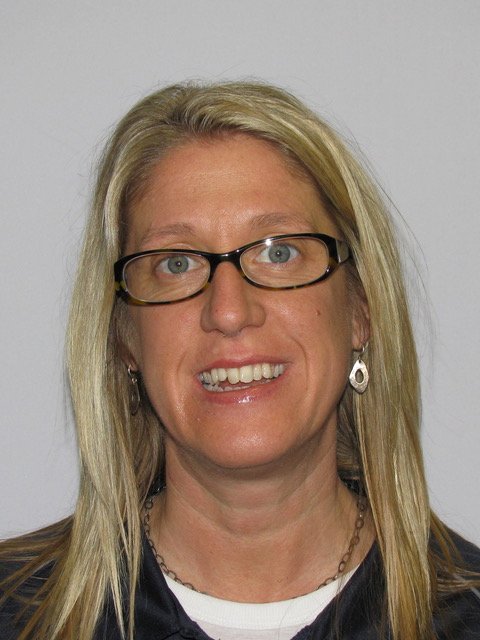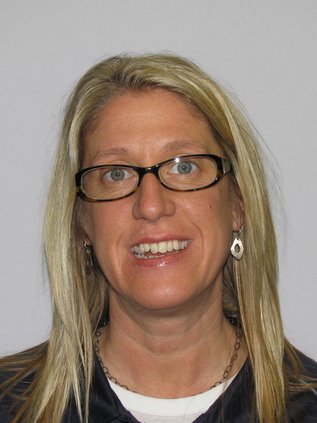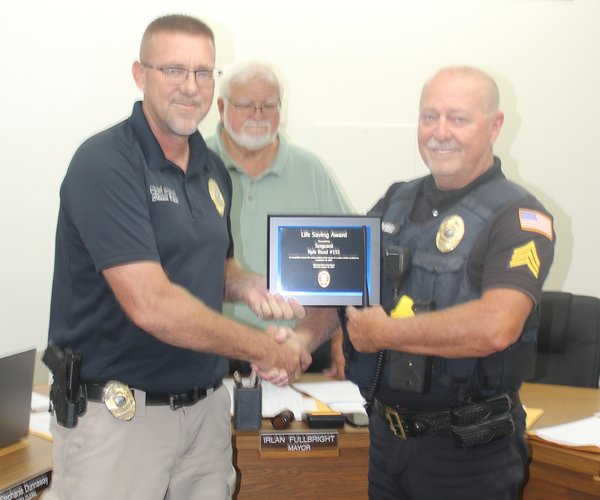

If a federal grant proposal is successful, the Family Crisis Center (FCC) in Great Bend will hire a liaison dedicated to human trafficking, upgrade training materials for schools and significantly expand community-wide education.
The FCC, with the support of Juvenile Services (JS), submitted the three-year, $325,000 proposal to the U.S. Department of Justice Office on Violence Against Women.
“Many people might not consider central Kansas a hotspot for human trafficking,” said Kylee Graves, FCC executive director. “But our location in the center of the country makes it the ideal target – especially because several interstates and highways intersect.
“This presents a distinct danger to human-trafficking victims who can be quietly and quickly moved to another location. These realities in our rural area create an environment conducive to trafficking for sex and/or labor.”
Adding to challenges faced by victims and law enforcement, “many residents are not aware of these dangers,” Graves added. “This makes it even easier for traffickers to infiltrate our area undetected.
“Smaller towns have an inherent sense of security and cannot imagine such horrific crimes occurring in their communities.”
The most effective way to stop human trafficking is to prevent it, which is why the two local entities collaborated to secure funding for a liaison, and targeted education and training programs, Graves noted.
“Our goal is to raise awareness so community members, law enforcement and other first responders can recognize early signs of trafficking and intervene before it is too late,” she commented.
The grant’s primary target areas are Barton, Pawnee and Pratt counties, with plans to explore options for expanding in central Kansas.
Victim information
Most victims are young people who tend to be vulnerable socially and financially.
“Perpetrators perceive youth as easier targets because their limited education and scarce financial resources make it difficult to recognize the dangers,” Graves said. “In addition, each new generation uses technology to a greater degree, which leads to an increasing number of cybercrimes.
“Furthermore, victims with unaddressed mental-health issues and/or those who abuse substances are more likely to be targets of human trafficking. It is imperative that we educate young people, as well as the adults in their lives, to recognize signs of trafficking.”
Graves also noted that while statistics are “staggering,” the problem is undoubtedly much worse because human-trafficking cases are under-reported.
“For these reasons, and others, it is crucial that our communities offer training and resources aimed at preventing human trafficking among young people and breaking the dangerous cycle before it begins,” she emphasized.
Juvenile Services (JS)
The work on this grant proposal isn’t the first time the FCC has collaborated with JS and its executive director, Marissa Woodmansee.
“Marissa brought human trafficking to my attention when I served as a family-support worker in USD 428 for 15 years,” Graves recalled. “In recent years, I have come to realize this is an even bigger problem than I originally thought.
“The JS team screens young people and refers them to us whenever appropriate. This has been an invaluable collaboration.”
Woodmansee noted that because of the overlap between JS and FCC services, she didn’t hesitate to throw her support behind the grant proposal.
“This partnership with the FCC is important for a number of reasons, especially because of this overlap with our programs,” Woodmansee said. “For example, our Intake and Assessment Program, which often entails forensic interviews, can determine if we need to find a safe placement for a young person.
“This placement would happen at least until the court decides if further action is required. Then, as a young person moves through our intervention and supervision programs, we can work with the FCC for a continuum of care regarding healthy relationships and advocacy in navigating the judicial system, with complementary services for parents and guardians. As funding gets tighter, working together is always beneficial.”





